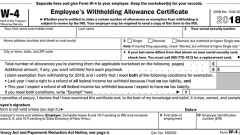As the Tax Cuts and Jobs Act begins the march toward its second full filing season, preparers have had plenty of time to recognize how much reform accomplished its stated goal of simplifying the tax system.
The answer: not much. Here are what preparers claim are the biggest challenges of the TCJA so far.










